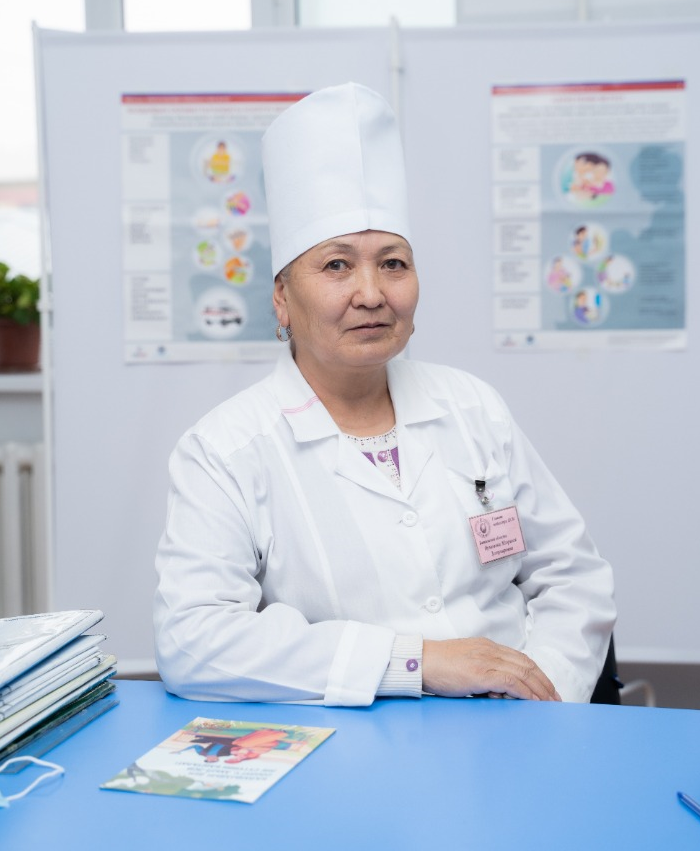In the Kyrgyz Republic, malnutrition among children and women is one of the most urgent challenges, with negative long-term consequences for socio-economic development. The 2018 Multiple Indicator Cluster Survey showed stunting levels among children under 5 at 12 percent nationally. According to the 2012 Demographic and Health Survey, 43 percent of children under 5 and 35 percent of women have some degree of anemia. To improve the quality of nutrition services within the health system, data on nutrition counseling must be available for understanding, monitoring, and evaluating these services.
While the Kyrgyz Republic’s health system reported on rates of exclusive breastfeeding, duration of breastfeeding, and rates of anemia, it did not include nutrition counseling indicators. To fill this gap, USAID Advancing Nutrition joined advocates from the Ministry of Health (MOH), the Center of Electronic Healthcare within the MOH, and other partners in project “Effective Management & Prevention of Non-Communicable Diseases in KG,” funded by the Embassy of Switzerland in the Kyrgyz Republic, to advocate for the inclusion of nutrition counseling indicators into the routine health system reporting.

In September 2020, USAID Advancing Nutrition, in collaboration with partners, revised the Clinical Information Form (CIF) that health workers use for outpatient care in the primary health care system. The CIF is an integral part of routine health reporting and the foundation for analyzing quantitative indicators of primary health care providers’ work. With the addition of nutrition counseling data, the CIF now helps to collect quantitative data on nutrition counseling provided to pregnant women and children under age 2 across the country.
Data from the CIFs are stored in an electronic database, making it available system wide in a timely manner. It enables nutrition counseling data to be collated at the national level, allowing for better decision-making and trend monitoring, and for better responsiveness when improving the quality of nutrition services for women of reproductive age and young children. Merinisa Ormonova, deputy director of Batken Oblast Family Medicine Center (FMC), noted, “Our efforts to improve nutrition counseling skills have been strengthened through electronic nutrition counseling data collection.”
USAID Advancing Nutrition Kyrgyz Republic plans to build upon this success and support the MOH and other nutrition stakeholders to advocate for effective nutrition policies and strengthened nutrition services throughout the country.